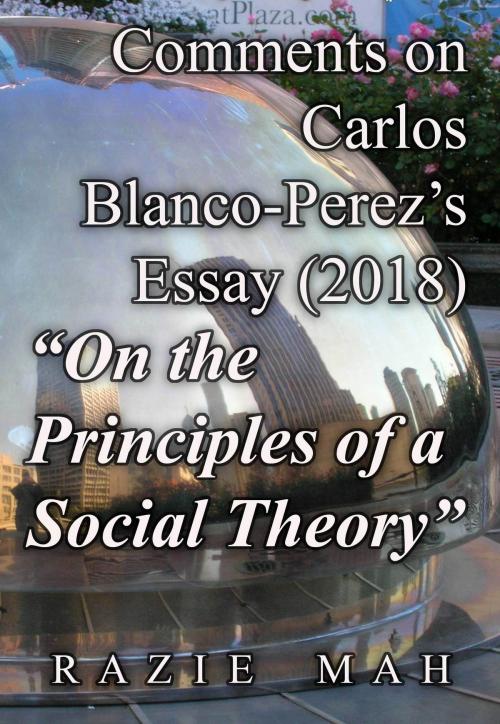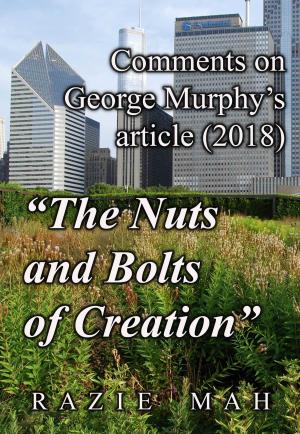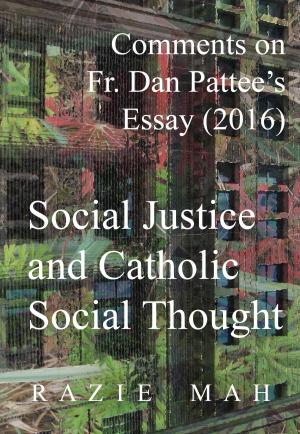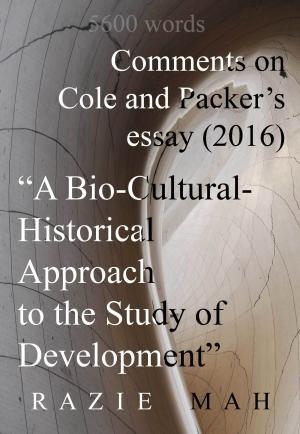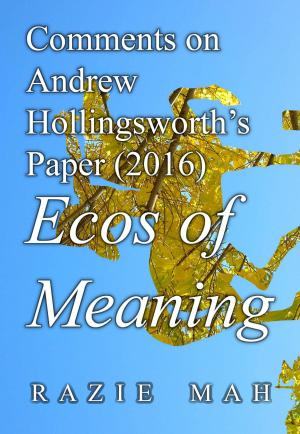Comments on Carlos Blanco-Perez's Essay (2018) "On the Principles of a Social Theory"
Nonfiction, Social & Cultural Studies, Social Science, Anthropology, Religion & Spirituality, Philosophy| Author: | Razie Mah | ISBN: | 9781942824596 |
| Publisher: | Razie Mah | Publication: | December 8, 2018 |
| Imprint: | Smashwords Edition | Language: | English |
| Author: | Razie Mah |
| ISBN: | 9781942824596 |
| Publisher: | Razie Mah |
| Publication: | December 8, 2018 |
| Imprint: | Smashwords Edition |
| Language: | English |
Carlos Blanco-Perez, at the Universidad Pontificia Comillas, Spain, publishes an article in the October 2018 issue of Cadmus (volume 3(5), pgs. 75-80), entitled "On the Principles of a Social Theory". The essay presents 10 premises that are essential for any viable social theory.
In these comments, the word "essential" serves to launch a hypothesis about the social thing. In the process, light is shed on the social sciences.
How so?
According to the tradition of Charles Peirce, things belong to secondness. Secondness consists in two contiguous real elements. This may be diagrammed as 'one element [contiguity] other element'.
Aristotle considered a thing (broadly defined to include events and spirits) in precisely this fashion. A thing is 'being [substantiates] form'. Here, "being" corresponds to the Latin term "ens". Ens is often translated as "being as being".
Essence is "the final attributes of the thing" or the substantiation of form.
Another Latin term, esse, is "being as existent", corresponding to formal requirements and design.
Essence contrasts with existence (ens without substance).
Esse contrasts with form (what we call a particular thing in order to categorize it).
These terms constitute a feedback loop centering on Aristotle's definition of thing.
This feedback loop generates social theories that satisfy Blanco-Perez's ten premises. Indeed, it serves as the foundation for the articulation of social theories in our current Lebenswelt.
Even more, the feedback loop fits Darwin's paradigm. It is innate. It belongs to the Lebenswelt that we evolved in.
The implications are enormous.
We need social theories that treats humans as humans and things as things.
Carlos Blanco-Perez, at the Universidad Pontificia Comillas, Spain, publishes an article in the October 2018 issue of Cadmus (volume 3(5), pgs. 75-80), entitled "On the Principles of a Social Theory". The essay presents 10 premises that are essential for any viable social theory.
In these comments, the word "essential" serves to launch a hypothesis about the social thing. In the process, light is shed on the social sciences.
How so?
According to the tradition of Charles Peirce, things belong to secondness. Secondness consists in two contiguous real elements. This may be diagrammed as 'one element [contiguity] other element'.
Aristotle considered a thing (broadly defined to include events and spirits) in precisely this fashion. A thing is 'being [substantiates] form'. Here, "being" corresponds to the Latin term "ens". Ens is often translated as "being as being".
Essence is "the final attributes of the thing" or the substantiation of form.
Another Latin term, esse, is "being as existent", corresponding to formal requirements and design.
Essence contrasts with existence (ens without substance).
Esse contrasts with form (what we call a particular thing in order to categorize it).
These terms constitute a feedback loop centering on Aristotle's definition of thing.
This feedback loop generates social theories that satisfy Blanco-Perez's ten premises. Indeed, it serves as the foundation for the articulation of social theories in our current Lebenswelt.
Even more, the feedback loop fits Darwin's paradigm. It is innate. It belongs to the Lebenswelt that we evolved in.
The implications are enormous.
We need social theories that treats humans as humans and things as things.
